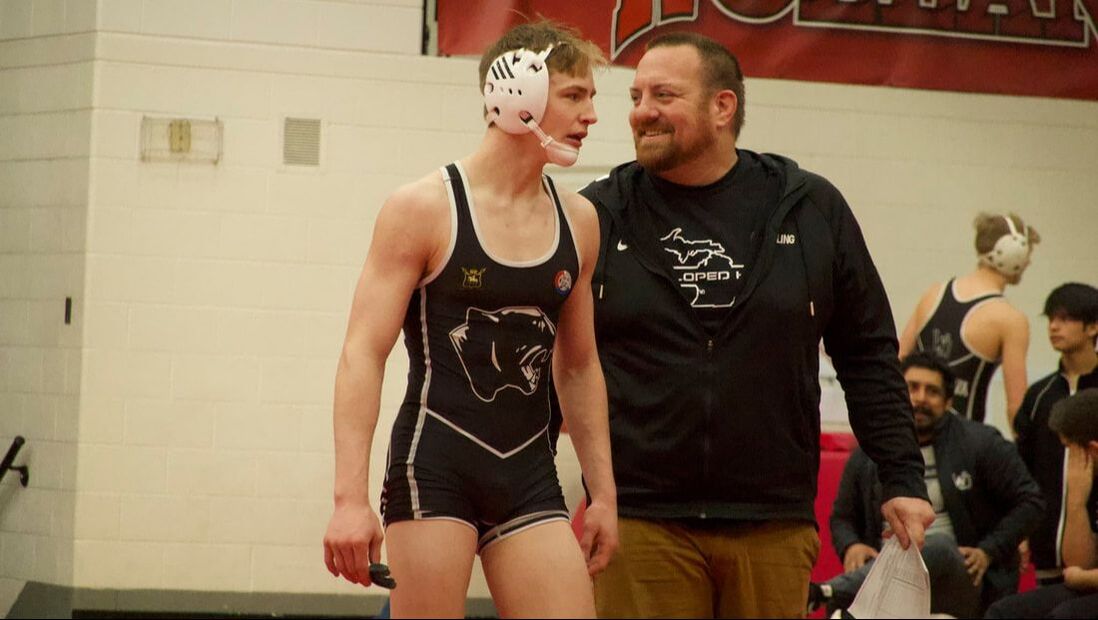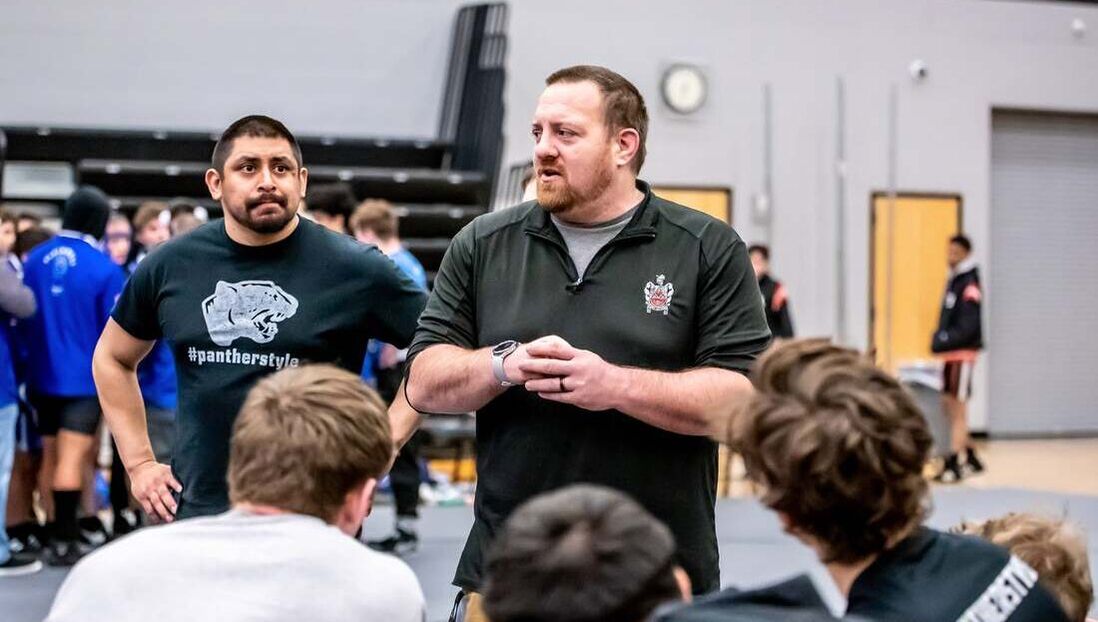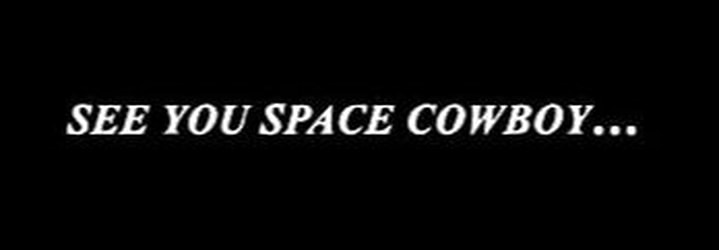|
(Disclaimer: This is not professional or legal advice. If it were, the article would be followed with an invoice. Do not expect to win any social media arguments by hyperlinking my articles. Chances are, we are both wrong). "You have to go to dark places to be successful." - Mark Perry “Once you lose your sense of humor, you're dead.” - Thomas Gilman Before we begin, it's essential to understand that you want to make something that lasts when you build. To do that, we need to look at the whole picture. Here is a parable from Joe Galli that can explain it better: Once upon a time, some travelers came upon three people working with stone. Intrigued by what they saw, the travelers watched the first worker for a few minutes and then asked, "What are you doing with these stones?" The worker quickly responded, "I am an excellent stonecutter and have been hired to do a job." Still curious, the travelers observed a second worker for a while before asking, "What are you doing with these stones?" The worker stopped his work, looked up at the travelers, and said, "Being a stonecutter is how I provide for my family." The travelers decided to ask the third person the same question: "What are you doing with these stones?" Putting aside tools, this worker stood up. Reaching a hand toward the sky, the worker declared, "I am a stonecutter, and I am building a cathedral." I hope that I never have to start over from scratch. But if I do, I want to remember the steps I took (and the ones I should have taken) to build a program. When I took the program's reins, it was in shambles—no direction or pipeline set in place. West Ottawa had limited success over the past 50 years, including a district championship team back two years earlier (when I was an assistant). But having been rocked by a scandal, our numbers at the middle school level had dwindled to 8 wrestlers (the only one who made it to their senior year). It had hemorrhaged so severely that we needed to rebrand and restart everything. I took most of my initial steps directly from my old college coach, Dave Mills, and his book, How to Build a Championship Wrestling Program. The following sections were transcribed from his work and repurposed for my program and vision. Recommended read for anyone starting. There are many directions you can go to, but this is not a one size fits all operation. Remember that what worked at other institutions will not always work at YOUR institution. This will drive nearly everything we do as a program. What are the expectations of the program? Who do we want in the program? Do we have individuals of good nature, proficient, scholarly, passionate, and do they want to take pride in what we are trying to achieve?" A quote floating around the internet speaks to me: "You didn't wake up to be mediocre." This means everything we do; we do to excel. Whether it is marketing or technique, my program deserves the same attention as the national powerhouses. When I took the reigns in 2015, I watched what programs like nationally ranked Detroit Catholic Central were doing. If their kids did it or got it, so were ours. As I said earlier, this is damn near impossible as we cannot replicate a program completely. There are multiple reasons why a program like Wyoming Seminary or Blair Academy is the way they are that will be impossible. But that doesn't stop us from trying. Congratulations on your new appointment as head coach! You are well on your way to alienating your friends, estranging yourself from your spouse, and upsetting parents you never have or will meet! To get started, you must comprehend your institutional resources (administrators, coaching peers, athletic trainers, strength training, faculty, etc.). Ask straightforward questions about what works, your limitations, your best resources, and especially, "Why West Ottawa?" Take a break and breathe: there is an impossible job ahead if you are not strategic in how to move.” Before you set out on this grand plan, keep a few key points in mind. Define what you want and stay true to it. It is easy to have what you want to do or what you would do in your head, but until you have the clipboard and whistle in your hands, you have no idea how you will react. That's why you should have an overall arching mantra to be a guiding star. It would be best if you also surrounded yourself with a coaching staff that believes in the direction and wants to invest in the program equally. This is easier said than done, but how you conduct yourself will aid in that. And above all, remember you can never be too organized or communicate too much. Everyone should access information, whether they read the emails or not. People need to be inundated with information, which will be your job, like a shepherd watching over his flock. After scouring the country and looking at consistently winning programs, one can easily pick out patterns. If you boil it all down to its essence, there is a successful formula. If you look at powerhouse programs across the country, you see a simple recipe that has helped them to acquire victory. Many other extenuating circumstances can make it easier for others. But manage the three major factors that lead to high school athletic success:
Define Who YOU Are The world's most successful coaches always start by asking themselves why they coach. A clear sense of your intent and core values supplies the stable direction to helm your coaching journey each season. You will have to acclimate your coaching methods regularly to keep pace with changes in the sport and society. Still, the traditions you and your athletes create to represent your objective and core values should stay pretty static. Wade Gilbert’s Coaching Better Every Season: A year-round system for athlete development and program success asks coaches to define who they are a person before they define their programs. He asks the following questions to define purpose and core values:
While you should answer these yourself, here is what I came up with: As a coach, I like retaining information quickly. If I see a technique or hear a philosophy, I seem to be able to instinctually carbon copy it and squirrel it away for later. It has made my job much more accessible, having a more extensive lexicon. I like that I am patient. I knew taking over a program on life support with no stronger history behind it (aside from a few phenomenal individuals) would take time. I tell my athletes that I am in for the long haul, so I can benefit from patients while they only have four years to do the job. Lastly, I like that I am forever the student, never the master. I am perpetually reading or listening to lectures within my field and out. As a coach, I could fill a book I don't like about myself. But primarily, I wear my heart on my sleeve. Despite my hardened exterior, I get down on myself from negative feedback from my parents or the administration. This becomes a problem even when it's constructive or even helpful. I trust in people (i.e., student-athletes) too much. I want t always assume that they will do the right thing when the time comes, but they seldom do. I have two former athletes serving lifetime sentences for their actions outside the program. That will haunt me for the rest of my days. Lastly, I crave positive feedback from my peers. Just because I am no longer actively competing doesn't mean I don't want to win. I want tangible awards like Coach of the Year, which is not something I can ever control. The happiest coach I've ever known was the assistant coach at Grand Valley State University when I was there (2007-2009), John Sanderson. He never seemed rattled, never seemed agitated. They just came into the room, beat us up and smiled. While to an outsider, this sounds like the underpinnings of a psychopath, Coach Sanderson never gave off that impression. He just seemed to enjoy what he did. He built a great rapport with our team, and we ended up winning the national title in 2008 and were runner-up in 2009. The two coaches I admire the most are worlds apart. Coach Scott Green, the current Associate Head Wrestling Coach at West Point, is an absolute wellspring of knowledge. The guy has a unique perspective on the sport and life in general. Much of what I pull philosophically is ripped directly from him. He also happens to be very successful. Before West Point, he coached an 11-year tenure as the Wyoming Seminary high school head coach. In his time with the Blue Knights, Green turned Wyoming Seminary into one of the best high school programs in the country, twice winning the National Prep championship while mentoring six National Prep individual champions. The second coach I admire the most is my head coach in high school, Eric McCourt. McCourt had me for four years at West Ottawa, and he pushed me to be the man I am today. In a world of angry, bitter coaches, McCourt always found a way not to scream or yell at athletes to get them to perform. His rational, pragmatic approaches to talking to young men and women as adults are sorely lacking in the hyper-competitive wrestling world. What I didn't steal from Green, I stole from McCourt. Now that I think about it, perhaps THEY should write a book. Getting Started Outside of the formula discussed above, pay little attention to "what everyone else does" rather than what fits your coaching style and what you think will work in our program. Do you want a team or a program? A kingdom or an empire? If you are starting from scratch, The ultimate goal is to get kids on the mats as soon as possible. You will need to get wrestlers drilling and on the mats, as you are not just building; you are maintaining the program. Find out what you have to work with from the team members from last year. Figure out your list of potential wrestlers. Meet with wrestlers early on to gauge their involvement level. But I want to surround our student-athletes with teammates who are 100% committed. This is an excellent time to meet with the current coaching staff and see if you are all on the same page—a 10:1 coaching ratio maximum. Appropriate roster sizes allow for: Individualism in training, academic support, and relationship building- all of which lead to retention and persistence toward graduation. Make time to meet with administrators like the Athletic director and the principal. It's good for them to put a name to a face and make sure to bring a shirt or something to give them. (branding is essential). If you get a chance, meet with the parents too. Especially the committed kids, and judge their level of commitment as well. Having parents who don't care is terrible, but parents that care AND don't like you are a huge pain. They have sometimes been cancerous and left a lot of damage in their wake, long after their child graduates. Provide a Safe Environment The room you will be practicing in harvests a crop of wrestlers needs to serve as one part church and one part garden, growing and mentoring every individual that laces up their wrestling shoes. If this is the first season at the helm, look these tasks over. If this isn't your first year, review that this is getting done. Inspect the room for what you have and for what you need. Ensure the room is well-padded and has enough space for all wrestlers. Ensure they have access to water breaks (approximately every 30 min). Someone will bleed every day, so have first aid supplies in the room that are easily accessible. You should be first aid certified; if not, go over care and handle blood (cleaning supplies on hand). Insist on proper safety equipment (headgear, knee pads, mouth guard) every practice and set that standard early. Accidents will happen, so make sure you have emergency numbers available and follow up with parents' phone calls after a wrestler is injured. Communication is paramount. Become a Student of the Sport. Join professional organizations. Attend conferences, clinics, and camps, and purchase applicable books, Youtube channels, and DVDs for your program. Develop and continue cultivating a philosophy you and your staff can believe in. Some veteran coaches may allow you into their rooms and watch what they do. Shadowing coaches by watching other practices can give you an idea of how to run a room. Sometimes even summer camps will let you bring a notebook and pencil to jot down options. You can follow athletes and coaches on Twitter and Instagram, as many offer advice as they build their brands. Staff Expectations Much like athletes, you need to decide if your staff is committed to the same outcomes as you. Make sure you do not conflate that with being as committed as you. You are the head coach. No one should be putting in as much time as you. Even if the other coaches are there once a week, paid or unpaid, make sure that they want the program heading in the same direction as you want. Coaching your coaching staff. Questions to ask:
By leaning on your coaching staff, the load can get lighter and you can expand faster. Here is a short list of potential items that you may need to decide you is in charge of what:
Post a Mission Statement for your program and ensure your athletes know what it is. Set goals and map out a plan for your program, both long-term and short-term. I will explore this in greater detail later. That's all for now. I'll be back to finish this up next time. WORK CITED:
0 Comments
Leave a Reply. |
AuthorRyan Lancaster wears many hats. Dive into his website to learn about history, sports, and more! Archives
April 2024
Categories |





 RSS Feed
RSS Feed